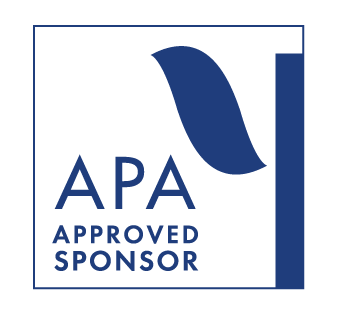Systemic Racism's Bitter Pill:
A closer look at Health Disparities
Understanding Mechanisms that are Associated with Increased Health Risks for African Americans
Presented by
Ezemenari M. Obasi, Ph.D.
October 23, 2020
10:30 am - 12:00 pm
Live Webinar
INDIVIDUAL COURSE ONLY
(Note: if you want to get 20% off sign up for the full conference go back to events and look for full conference registration.)
African Americans are disproportionately exposed to chronic stress by way of high levels of racism, discrimination, violence, crime, neighborhood disorganization, unemployment, financial strain, and low-to-no socioeconomic status. Furthermore, they tend to lead the nation in their lack of access to health insurance, healthcare facilities, safe green space, and high-quality nutrition. Persistent exposure to chronic stress causes ‘wear-and-tear’ on the body’s regulatory system and compromises its capacity to effectively recover from incessant exposure to environmental stressors. The dysregulated stress response – combined with the lack of resources to transcend this public-health crises – places African Americans at-risk for disproportionate levels of substance use, mental health challenges, and associated outcomes like violence (e.g., homicide, suicide, child abuse, and domestic violence), injuries (e.g., crashes, falls, burns, and drowning), and health disparities (e.g., asthma, cancers, chronic liver disease, diabetes, gastritis, hypertension, meningitis, myocardial infarction, obesity, pancreatitis, stroke, STDs, etc.). The purpose of this course is to provide an intermediate introduction into understanding mechanisms that are associated with increased health risks and outcomes for African Americans. More specifically, it will (1) provide a summary of health disparities experienced in the African American community; (2) describe biological mechanisms that predict health risks and outcomes; (3) detail root causes of the social determinants of health; (4) review cultural predictors of health behaviors; and (5) identify ways in which psychologists can advance health equity science and disease prevention. Given the intersectionality between today’s COVID-19 pandemic, unemployment rates, and the racial awakening taking hold in the U.S., it is imperative for psychologists to leverage their disciplinary expertise and advance cutting-edge health-equity science that informs novel prevention, early detection, diagnosis, and intervention strategies that mitigate a broad range of health challenges experienced by members of the African American community.
Learning Objectives
1.
Summarize health disparities in the African American community;
2.
Describe biological mechanisms that predict health risks and outcomes;
3.
Identify root causes of the social determinants of health;
4.
Demonstrate knowledge regarding cultural predictors of health behaviors;
5.
Identify ways in which psychologists can advance health equity science and disease prevention.
Course Level: Intermediate
Target Audience: Licensed psychologists, scientists, and other psychology professionals; counselors; graduate psychology students.
Conflict of interest or commercial support:
There is no commercial support related to this program and she is not getting paid by your company for this course. There is no conflict of interest related to this program.
SPEAKER

Dr. Ezemenari M. Obasi earned a B.S. degree in Physics at the University of California – Irvine. He then went on to earn a Ph.D. in Psychology from the Counseling Psychology program at The Ohio State University, while also obtaining a minor in quantitative psychology in psychometrics and data analysis. He completed his pre-doctoral internship at Harvard Medical School: McLean Hospital. Dr. Obasi is a tenured Professor in the Department of Psychological, Health, & Learning Sciences at the University of Houston. His research focuses on the neurobiology of stress, addictions, health disparities that disproportionately affect the African American community, and cultural predictors of health behaviors. As the director of the Hwemudua Addictions and Health Disparities Laboratory (HAHDL) and the Founder/Director of University of Houston’s HEALTH Research Institute, he takes an interdisciplinary approach to team science (incl., biomarkers, biofeedback, genetics, fMRI, experimental manipulations, etc.) and leverages a diverse range of settings (incl., community, bar lounge, experimental rooms, medical facilities, etc.) to investigate biological, psychological, social, and cultural determinants of health. To this end, Dr. Obasi has published numerous peer-reviewed publications, presented research at professional meetings, and led or participated in over $17M of innovative science funded by the National Institute of Health (e.g., R01, R21, R13, P20, P30), State (e.g., CPRIT), and other foundations (e.g., United Health Foundation). Ultimately, he is committed to bringing about positive change to underserved and marginalized communities and has a strong history of being actively involved in the community while disseminating cutting-edge research designed to improve their quality and length of life. In addition to his distinguished scholarship, Dr. Obasi serves as the Associate Dean for Research in the College of Education. Dr. Obasi also provides trainings, workshops, and consultation services across the United States.
EARLY BIRD REGISTRATION ENDS SEPTEMBER 30, 2020
Individual course if you want to get 20% discount sign up for the FULL conference on another link.
|
Registration Fees
Per course
|
Early-Bird
9/30/20 |
REGULAR |
| Member |
$15 |
$25 |
| Member Student |
FREE |
$14 |
Non-Member
|
$25 |
$35 |
Non-Member Student
|
$12 |
$17 |
Conflicts of Interest: As an APA-approved sponsor of continuing education, San Diego Psychological Association is committed to the identification and resolution of potential conflicts of interest in the planning, promotion, delivery, and evaluation of continuing education. Please review the conflict of interest guideline below.
APA Guidelines Regarding Potential Conflicts of Interest
Consistent with concepts outlined in the APA Ethical Principles of Psychologists and Code of Conduct, potential conflicts of interest occur when an individual assumes a professional role in the planning, promotion, delivery, or evaluation of continuing education where personal, professional, legal, financial, or other interests could reasonably be expected to impair his or her objectivity, competence, or effectiveness.
CE Grievance Procedure
SDPA is fully committed to conducting all activities in strict conformance with the APAs Ethical Principles of Psychologists. SDPA will comply with all legal and ethical responsibilities to be non-discriminatory in promotional activities, program content and in the treatment of program participants.
See CE Grievance Procedure.
Attendance Policy: CE Credit and Certificates will not be issued to those who arrive later than 10 minutes or leave early from any course scheduled time. This policy is strictly enforced to ensure compliance with APA Guidelines.
Cancellation Policy: No refund will be given to any registered individual who is a no-show to a course. Any individual canceling within 72 hours of a course will be refunded 50% of the course fee.
ADA Compliant venue for accessibility accommodations contact Tami Magaro - sdpa@sdpsych.org.
 American Psychological Association
American Psychological Association
The San Diego Psychological Association (SDPA) is approved by the American Psychological Association (APA) to sponsor continuing education for psychologists. SDPA maintains responsibility for this program and its content.
LCSW, LFMT, LEP & LPCC
In California, APA approved CE’s are valid for licensed psychologists, licensed school psychologists, LCSW, LMFT, LEP & LPCC licensees. Though APA is a national organization, the out of state licensee should check with their state governing board to make sure that APA approved CE'’s are valid in their state for their license.
See SDPA Website Continuing Education Policies.
SPECIAL THANKS TO OUR EXHIBITOR
